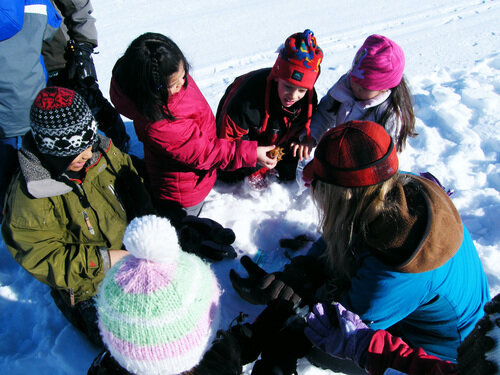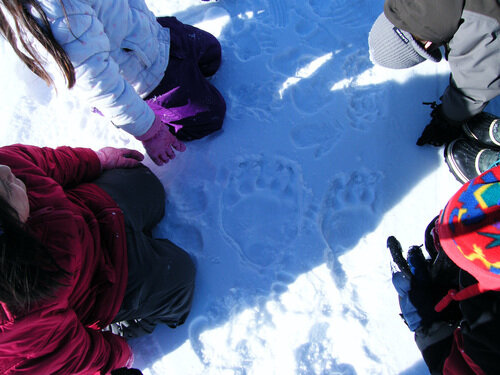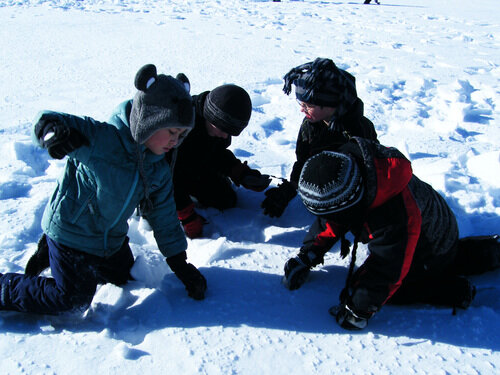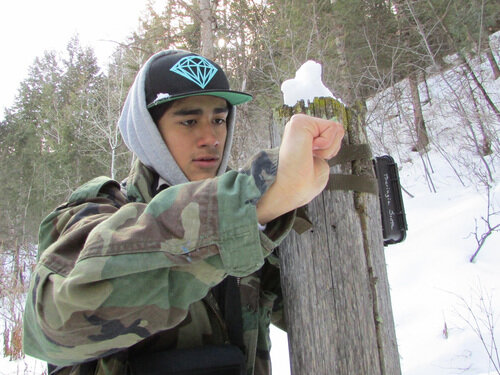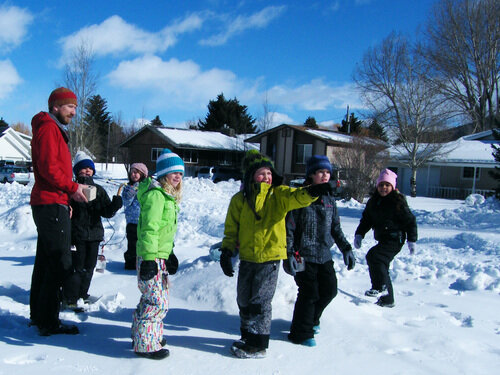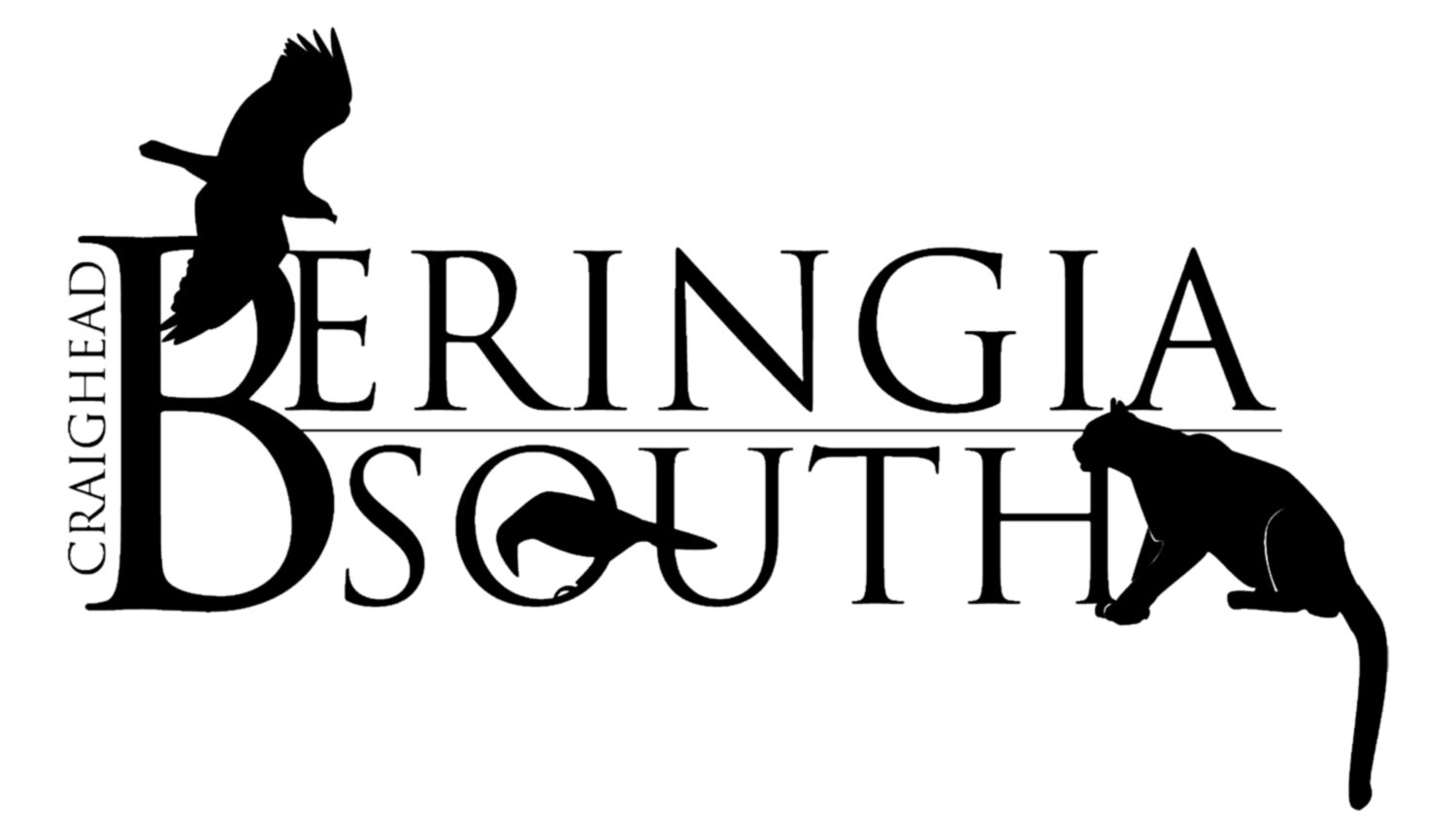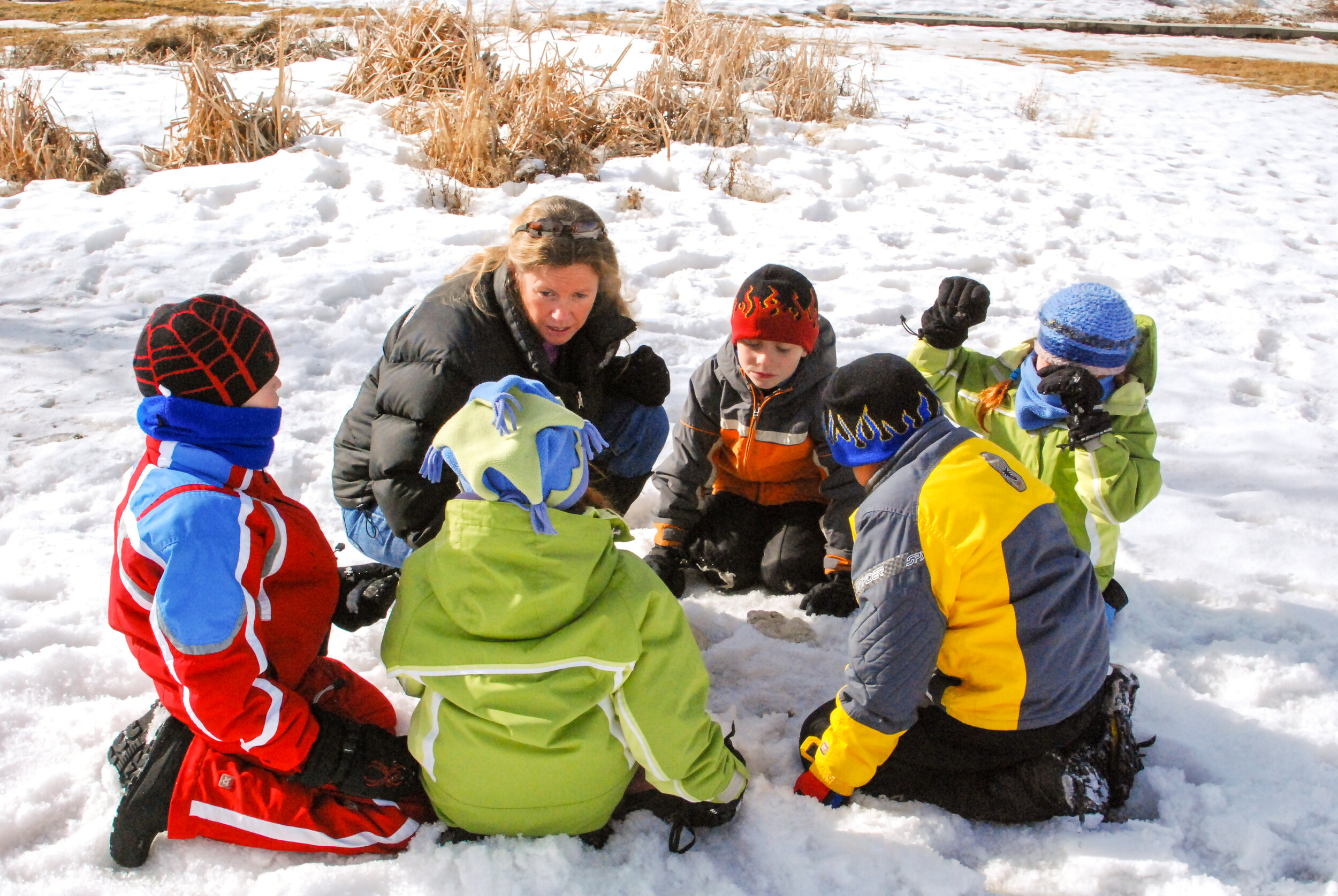
School Programs
There is often little connection between the scientific community and the general public. Scientists can have trouble relating their findings in “plain English” that is easily understood by the public. However, such understanding is critical to the proper management of public resources, such as our wildlife. Jackson Hole is home to one of few pristine and intact ecosystems left in the United States. Because of this, many biologists use this valley as their wild laboratory and numerous studies take place here.
The underlying theme for most wildlife studies in Jackson Hole is that they are designed to help provide sound, defensible knowledge about issues threatening our ecosystem. Unfortunately, the communities for which these studies were ultimately designed to help are rarely informed of the results or even informed of the studies themselves. Our educational programs are designed to help fix this problem.
Throughout the years, we’ve offered young learners the opportunity to explore their local environment through habitat and tracking lessons. Older students have used real-life data from the Teton Cougar Project, as well as from our lead toxicology studies, to learn about the scientific method and about how to analyze and present data. An internship program took student involvement a step further, bringing students into the office and the field.
The results of our program have been heartening: students’ scientific literacy improved by an average of 39%, and teacher requests for program involvement jumped by 60%. Students admit that they’re having fun learning the methodologies of research while also building relationships across social boundaries that they otherwise wouldn’t have broached.
